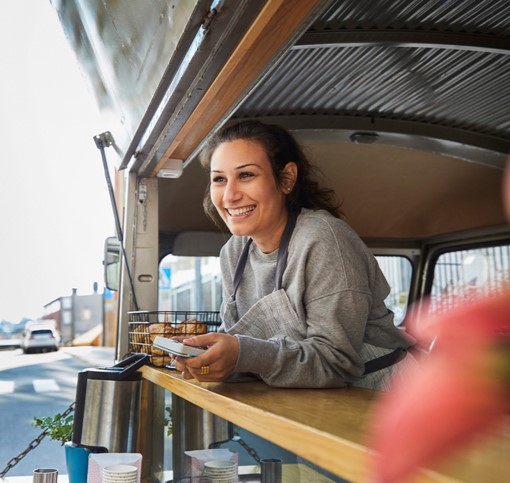
- Four minutes read
A day in the life: spotlight on fatherhood
We’re celebrating Men’s Wellness Month at Paysafe, so we spoke with Philipp Zelmer, Director Engineering, Barcode, to learn about his role at Paysafe, and as a working dad.
Can you give us an overview of your typical working day, and how you juggle your commitments as a dad?
My typical working day starts at around 6:15am at home. I check my emails, my schedule for the day and start drafting my to-do list.
Around 7am family life starts, which includes breakfast and taking my five-year old son to kindergarten.
Afterwards it’s time for my exercise routine. Either I bike to the office or go for a run in our neighbourhood. Right after I have my first meetings and it’s time to be productive.
My wife and I usually plan two weeks in advance who’s going to pick up our son on which weekday. This depends on our work commitments and evening plans, but usually it’s two days each and we keep Fridays flexible. There’s just one rule: no pick-ups on office days as this would make commuting way more stressful.
One of us picks him up around 4:15pm and we usually go to the playground, meet with one of his friends or go grocery shopping. We’re home around 5:00pm and I continue working for another hour and a half. 6:30pm is dinner time and most weeks we manage to have dinner together three-four times.
How do you feel the role of being a father has changed over the years?
In my experience the role has changed significantly over the years and in my opinion, it has changed for the better. A lot of fathers I know are way more involved in childcare than they used to be, and many reduce working hours to have more time for their kids. The companies I’ve worked for over the years were always very supportive regarding parental leave, flexible working time and childcare related sick days.
Can you tell us about your own personal journey as a father, and how you balanced your career?
Even though the companies I’ve worked for were very supportive, this doesn’t mean I didn’t struggle with balancing fatherhood and my career. The sleep deprivation took its toll in the first few years.
Additionally, I wanted to be the best dad in the world and started to deprioritise my own wellbeing to spend every waking minute with my son or at work. I was trying to please everyone and failed to please anyone.
However, what got me out of it was books, lots, and lots of books. During sleepless nights and long walks with the stroller I started listening to audio books to keep my brain from thinking about work problems 24/7. One quote that particularly stood out to me was from Greg McKeown: “If you don’t prioritise your life, someone else will.”
So, I made a list of my priorities in life and whenever I was struggling with work, fatherhood, wellbeing, and other commitments I glanced at my list and knew what to do. This changed everything for me. No guilt in taking 30 minutes for exercise a day, cancelling a work meeting to be with my sick son, or shifting to hang out with friends to support my wife. And no guilt in skipping my favourite TV shows to get some work done.
This prioritisation gave me the energy required to be a good dad whenever my son needed me the most, be great in the (re-scheduled) meeting I had to cancel before and support my wife in pursuing her career, too.
If you had one piece of advice for soon-to-be dads and new fathers, what would it be?
Energy and mental wellbeing are the most important assets you’ve got.
Reducing the need to make lots of decisions (by having a list of life priorities) and focussing on things that give you energy like good food, sleep and exercise, will help you be better at everything you do. Start saying no to the non-essential things and focus on what matters most to you.
According to research, the pandemic placed a disproportionate burden on working mothers. Do you think this is now being addressed?
This was a very unfortunate development and it showcased that we still have a long way to go when it comes to gender equality.
In my experience it has been addressed by a lot of companies, and managers are more understanding and supportive when it comes to enabling fathers to step up. But in my opinion the main culprit is still around: The Gender Pay Gap.
A lot of families feel they must place the burden of deprioritising their career and investing more time into childcare on working moms. My wife and I are both fortunate enough to work in leadership positions, so we manage to keep things fair when it comes to childcare, but families with lower income unfortunately don’t have this luxury because of the pay gap. This needs to be fixed.
To learn more about working at Paysafe, visit the Paysafe Careers page.




